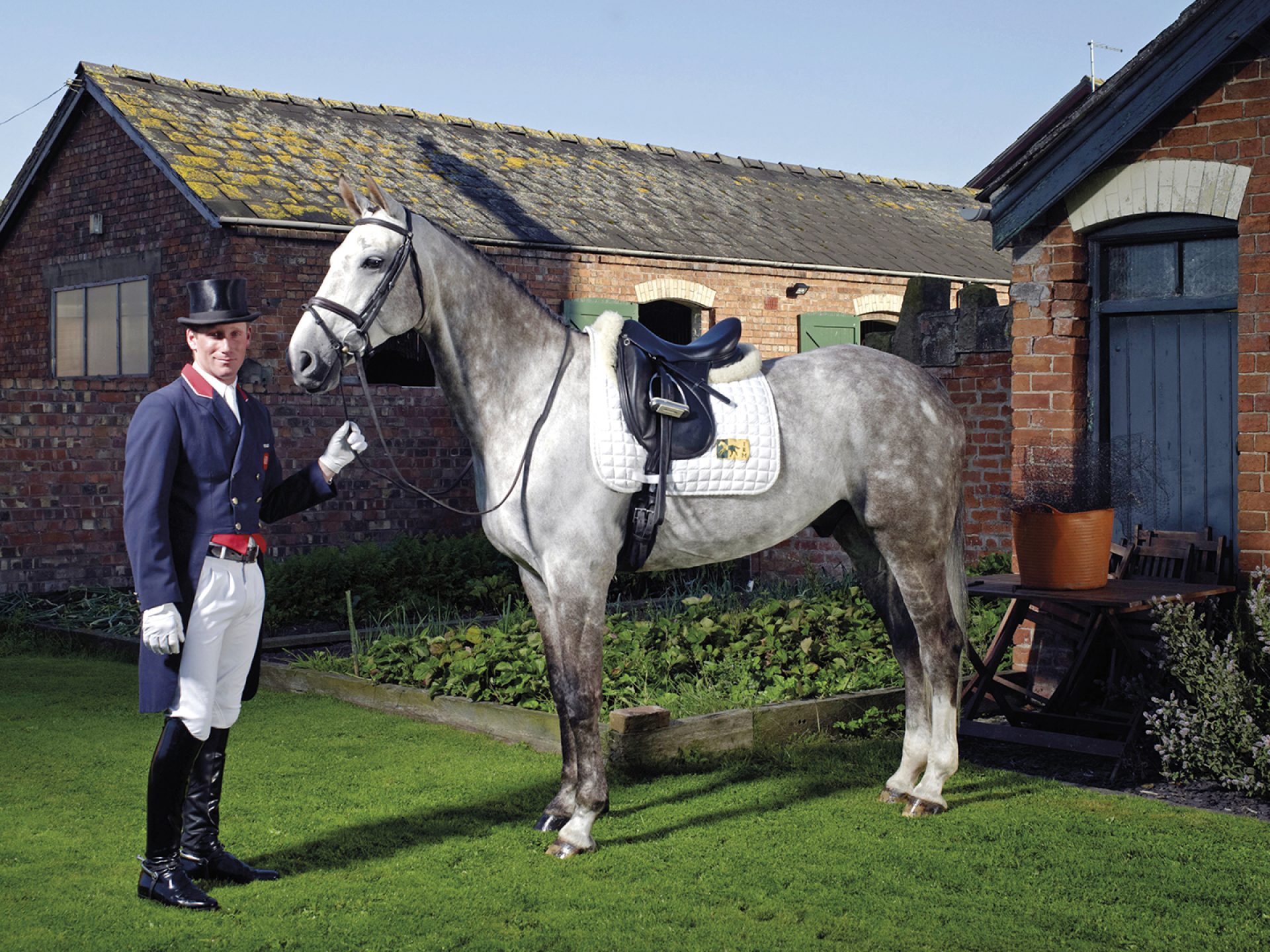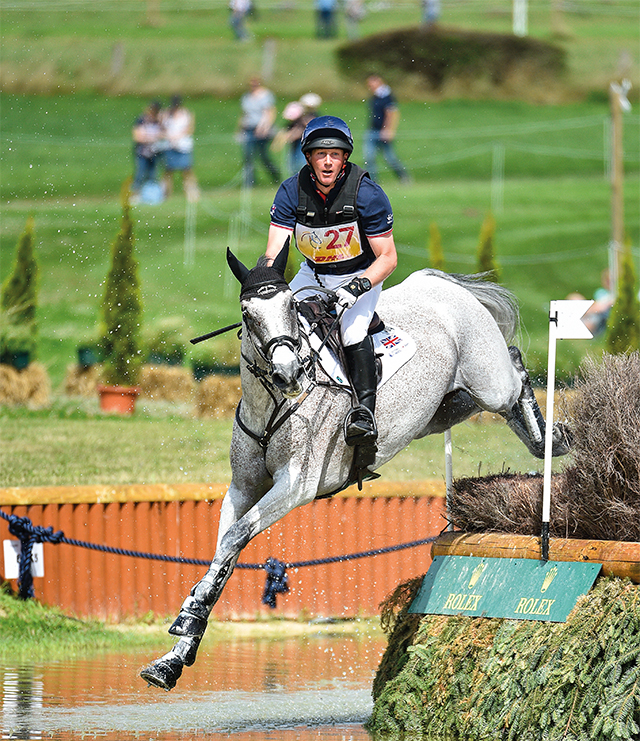May 12, 2021
Interview with British Eventing Rider Oliver Townend

This article was originally published in Populous Magazine, our biannual publication featuring news and trends from the worlds of sport, entertainment, and major public events. Find out more, and sign up to receive a free copy, here.
In a sport dominated by the well-heeled upper-middle classes, Oliver Townend is something of an anomaly. A Yorkshireman, whose father was a milkman, his route to the top of the equestrian discipline known as eventing is not the usual one.
“For me, it is amazing to be an event rider,” he told Populous magazine. “When I was young, I was told so often that I wasn’t the sort of person who could be one. People like us worked, got a trade, and if we were lucky and worked hard, horses could be our hobby. I still feel that I have to prove people wrong. I’m from a completely different background to most eventers, but I guess that’s made me even more determined to do well.”
Eventing is an exceptionally demanding sport that unites all the facets of horsemanship: dressage, cross-country riding and showjumping. Townend has been the top-ranked rider in it three times in all. He first reached the pinnacle in 2009, aged 27, after achieving an incredible double by winning both Badminton and Burghley Horse Trials – the two biggest prizes in eventing – in the same year. Now he’s 38 years old and still universally acknowledged as the best.
“Work ethic and mileage,” he says, when asked what his secret is. Both true, but he’s underselling himself. Yes, he works phenomenally hard, rising at 4.30am at his home and stableyard in Shropshire, close to the border between England and Wales. Every day he has to exercise up to 25 horses. He trains and competes more horses than possibly anyone else in eventing, buying the majority of them very young and helping them reach the top of their capabilities. Having practised this sport since his teenage years, he has the instinctive knowledge and reflexes to deal with anything the quixotic, highly-bred equine athletes throw at him.

Oliver inherited this work ethic from his father, Alan, who used to start his milk round at 1.45am at the family home near the Yorkshire town of Huddersfield. “When you realise that someone has done so many hours’ work before everyone else is out of bed, it becomes normal,” Oliver says. “It makes me think my 4.30am mornings aren’t actually that early.”
He also inherited his father’s fascination with horses and a talent to persuade them that man and horse are a solid team. “More than anything, I love horses,” he insists.
Nothing has ever been handed to him on a plate. His father, also a passionate eventer, competed on a shoestring, buying and selling horses to fund his sport. Even so, as a youngster, Oliver had to beg for a pony.
The drive to win was instilled very young. “I remember riding into a showjumping ring on my pony and being embarrassed because its shoes were clanking and nearly falling off,” Oliver remembers. “Dad said: ‘If you want it shod, you’d better win the class.’ Winning wasn’t just something nice, it was essential. I realised, if I wanted better things, I needed to win the money to buy them.”
In this expensive sport, it is impossible to make a living simply from prize money. All riders, even those at the top of the game, must train and sell horses, and teach riding in order to balance the books. Oliver benefitted from an extra financial boost, however, in November 2008 when he won first prize of £100,000 (US$139,000) at a one-off eventing competition in Cardiff’s Principality Stadium. The money enabled him to buy Gadlas Farm, his current home and stableyard (above).
"I am very proud of what I have here..."
It’s an immaculate property. The six-bedroom, redbrick farmhouse is a few paces from the first line of stables, where his top horses reside, easily monitored from his bedroom window. Everything here is freshly painted and scrubbed. Stable corners are decorated with hanging baskets. The grass is always cut and tidy. In total there are 46 stables, all with pristine, deep beds for the horses. The equestrian facilities are impressive, comprising three huge arenas with the best artificial surfaces on the market. In all, it’s 40 acres, with numerous well-fenced paddocks for turning out the horses. “I am very proud of what I have here,” he says. “Everything I make goes into improving it and making my eventing a successful business.”
Two of Oliver’s finest horses are Ballaghmor Class and Cooley Master Class. Between them they have the best record in the world at Concours Complet International 5* events – the highest level of competition in eventing. Riding the former, Oliver won Burghley Horse Trials in 2017, while on the latter he won American eventing’s biggest prize, the Kentucky Three-Day Event, in both 2018 and 2019.
The only major title missing from Oliver’s CV is an Olympics medal. These two brave, brilliant horses were primed to compete in the Tokyo Games in 2020, before they were postponed. Hopefully, Oliver will win a medal on one of them this year instead.
Some of the world’s greatest equine athletes have run at Populous-deisgned equestrian venues such as Ascot Racecourse in the UK, Eagle Farm Racecourse in Brisbane, Happy Valley Racecourse in Hong Kong, and Oklahoma State Fair Park Arena in Oklahoma City.
Lorem ipsum dolor sit amet consectetur, adipisicing elit. Non facere corporis et expedita sit nam amet aut necessitatibus at dolore enim quis impedit eius libero, harum tempore laboriosam dolor cumque.
Lorem, ipsum dolor sit amet consectetur adipisicing elit. Illo temporibus vero veritatis eveniet, placeat dolorem sunt at provident tenetur omnis, dicta exercitationem. Expedita quod aspernatur molestias eum? Totam, incidunt quos.